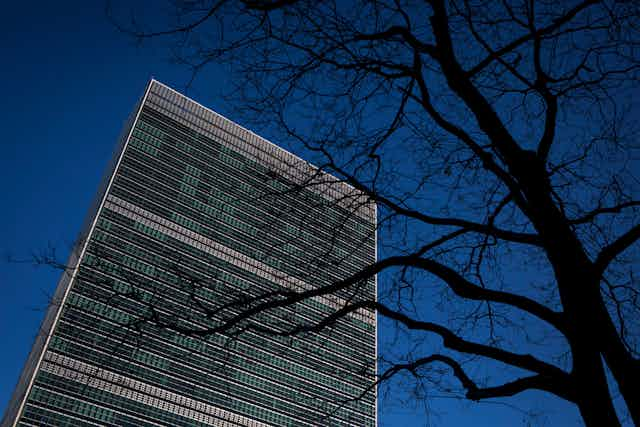The future of the United Nations (UN) is more uncertain today than at any time since it was created. Fairly or unfairly, its opponents rail against its bureaucratic ineptitude, ingrained politicisation, and poor performance against both urgent crises and long-term threats to shared prosperity.
Such criticisms are a serious problem in today’s world, which badly needs a well-functioning international governance system. More than 65m people have been forced to leave their countries by conflict, millions more face violence and poverty at home, and epochal tests like climate change and inequality confront every nation. But with populism and nationalism on the march, the legitimacy of the international system itself is under threat.
Like his recent predecessors, the new UN Secretary General, Antonio Guterres, has promised that reforming the institution he heads would be among his highest priorities. He understands that the UN is under pressure to prove it’s still valuable, and that it therefore needs to change. Fortunately, some paths forward have already been charted.
The UN is modernising its role as a result of two major agreements: the 2030 Development Agenda and the Paris Climate Change Agreement. Both signal a move away from traditional top-down multilateralism among states and towards new ways of co-ordinating with businesses, civil society and other non-state actors. As laid out in the UN Sustainable Development Goals (SDGs), “multi-stakeholder partnerships” are meant to be pragmatic, solution-oriented ways of working to achieve shared aims at a time of squeezed budgets and scarce public resources.
The UN has been moving towards models of standard setting, service providing and knowledge sharing forms of engagement with non-state actors for some years now with initiatives such as Sustainable Energy for All, Every Woman Every Child, and the UN Global Compact. The SDGs have ushered in new opportunities for targeted strategies to meet ambitious goals, from combating violence against children to eliminating forced labour and modern slavery.
On paper, it all sounds very impressive – but such experiments in public-private governance have a rather chequered track record.

Many past development partnership efforts have produced little measurable output or impact, and have gone ahead without clear rules to ensure accountability. A review of partnerships on health and education suggests there is often too little consistency on core principles and too little transparency on where donations have gone and how impacts are evaluated.
When the SDGs were agreed, these problems were not fully addressed, and they remain far from solved. As things stand, the UN system doesn’t have a way to properly learn from its past experiences; it needs additional private funding, but at the same time has to ensure it can stay independent and co-operate responsibly with non-state actors. So how can it strike the balance?
Incubator and broker
First up, the UN must be more strategic in partnering with national governments in ways that empower people and address inequalities head on. The risks of getting this wrong are serious: if development partnerships aren’t properly managed, they can actually reinforce existing power imbalances within societies. And if governments focus only on the goals of most interest to the private sector – on infrastructure, for example – other critical problems might be marginalised. For example, youth employment and decent jobs are critical for social stability, but need public and private sector muscle working on their behalf with meaningful participation of communities and those most in need.
If UN agencies and programmes want to get their work with outside partners right, more must be done to foster the right sort of institutional culture. This means helping staff develop the skills they need and setting clear terms for partnership initiatives, beginning with adherence to the UN Guiding Principles on Business and Human Rights. In 2016, the World Health Assembly adopted a new framework for working with outside partners; other parts of the UN system need to do the same.
The UN’s member states also need to agree on principles for accountable, transparent and effective partnerships, and they need to give the secretary general and his team stronger support rather than expecting them to do all the work without adequate resources.
Development partnerships aren’t easy to master, and they won’t solve every problem – but they nonetheless offer the UN a lifeline. If it can prove it’s capable of real leadership - as an agenda setter, facilitator and evaluator of collaboration around agreed goals - not just among states but among non-state organisations too, it will have found a path toward meaningful reform. The rest of the world is forgetting how relevant the UN can be at its best. It needs to get to work.

